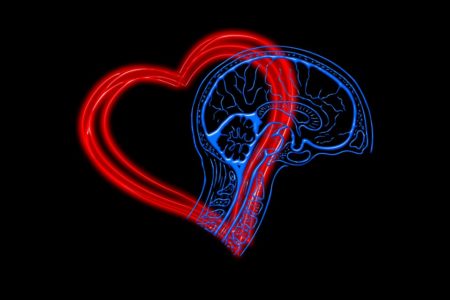Love and the brain
by Ailsa Harvey · 12/11/2020
“Love is more than lust or procreation. It’s also about stable bonding and enduring attachments”

As a pioneering neuroscientist, Dr Michael Merzenich has been granted close to 100 patents. Using five decades of research into brain plasticity, he explains the brain’s key role during love.
(Image credit: Michael Merzenich)
Is love a real feeling, or a concept based on a series of reactions in the brain?
Love is the real convergence of powerful neurological effects that distort your emotional balance in a wonderful form. Our brains are designed to support that progression to love, of course. That critical progression to procreation and loyal partner support is key to the survival of our social species. Love is more than lust or procreation. It’s also about stable bonding and enduring attachments.
Through the brain’s reward process, is all happiness capable of developing into love?
‘Love’ is a sloppy word. I might ‘love’ football because I’ve seen my team have so many wonderful successes and celebrated them so cheerfully many times in my past. I have learned to associate football with rewarding. I may ‘love’ my garden or my pub or my job. This use of ‘love’ explains neurological attachment, but this is quite a different thing from the love of another person, where there are more physical and chemical factors in play. That person has a rich array of ways to interact with me – by voice, touch and emotion– that reward and surprise me. It is this combination that can excite me. And every kindness I deliver to them that they respond to also excites me through the same neurological processes. When two individuals do this well, that mutual co excitation is just about the most powerful way that your brain can be engaged.
Are some brains more susceptible to love than others?
Sure. The machinery in the brain is constantly developing. Its health and powers are a product of their historic use. We ‘exercise’ them as we live a hopefully stimulating and rewarding life – and some lives are a lot more positively stimulating than others. A person that has had a terribly non-rewarding life will take longer to find themselves smitten. In addition, a kind and generous person is exercising their brain in ways that help set them up for love.

(Image credit: Gerd Altmann)
What do you find the most fascinating about the brain’s role in love?
It’s all rather miraculous. And yet, it’s still all blood-and-guts biology. As a scientist, I’ve been very interested in how our evolution of these processes can come at a price. The rewarding and stimulating processes can go awry, creating a major source of human suffering. Sometimes this can cause issues with mental illness, addiction, criminality and violence. How can a person both love and beat their partner? We are a long way down the path to answering questions like that one. We are working to evolve strategies for helping individuals drive their brain out of the kinds of ditches they can fall into – back to the thriving, loving human mainstream.
How much more is there to learn about love and the brain – do we have it all sussed?
Like many things in brain science, we have a pretty good understanding of it as a complex sequence of processes. We can see it happening in the brain through its major steps. At the same time, truly experiencing love is not the same as describing it through all of this organic biology, and it comes in diverse forms. I was very lucky to experience it as a young man – in my case with a mate for life – then with our progeny and their progeny and with my own parents. I have found love of different sorts, such as with a beloved friend and a dog or two.
For more science and technology articles, pick up the latest copy of How It Works from all good retailers or from our website now. If you have a tablet or smartphone, you can also download the digital version onto your iOS or Android device. To make sure you never miss an issue of How It Works magazine, subscribe today!




